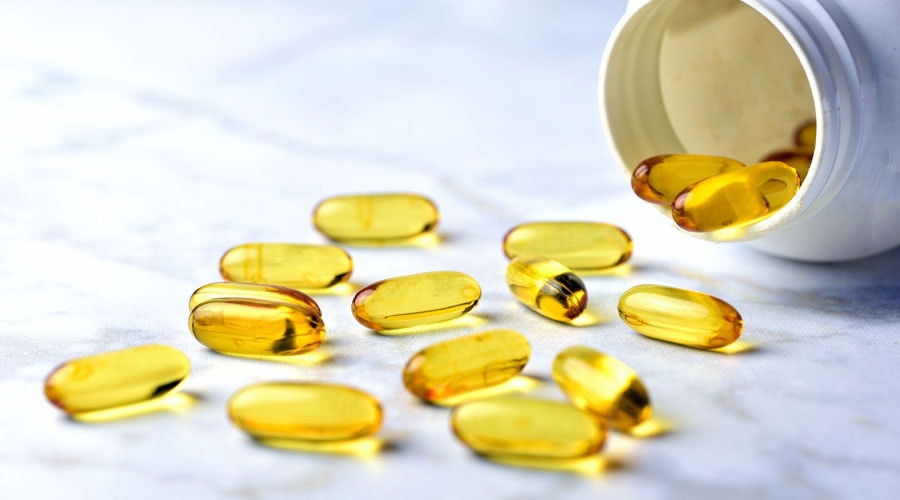If you consider taking fish oil to improve your overall health, you may wonder how much fish oil you should take daily. You may also want to learn more about the recommended dosages for different fats. Taking the right omega-3s is essential to get the benefits you need. Omega-3s have improved blood sugar levels, clotting ability, and blood pressure. They may also lower your risk of breast cancer.
Essential for Fetal Development
Omega-3s are a family of long-chain polyunsaturated fatty acids that play a significant role in human physiology. They are essential for fetal development. A growing fetus requires ample DHA, one of the most important omega-3 fats.
DHA is a crucial component of cell membranes in the brain. It also helps in the metabolism of neurotransmitters. The fetus accumulates about 50 to 70 mg of DHA per day during the last trimester.
As with any supplement, it is best to ask a healthcare professional how much fish oil should I take daily. Several over-the-counter supplements contain these fats. Some prenatal vitamins include 200-300 mg of DHA.
Omega-3 fatty acids may help prevent preeclampsia, which can harm pregnant women. It is especially true for women who are overweight or have diabetes.
It may Lower the Risk of Breast Cancer
Omega-3 fatty acids have been shown to reduce breast cancer risk. They can be found in many food sources, such as fish, nuts, and seeds. These polyunsaturated fats have been shown to lower the density of breast tumors, and they may also reduce inflammation. In addition, omega-3s are known to promote heart health.
Despite the research showing the benefits of omega-3s, there has been controversy about whether they help to prevent cancer. However, more studies have shown that they do.
It may Alter Blood Sugar Levels, Clotting Ability, and Blood Pressure
The role of omega-3 fats in human health is being explored more and more. They may have protective effects in many different conditions. Omega-3 fatty acids have also reduced inflammation and promoted blood clotting.
Omega-3 fatty acids are found in fish and other foods. These polyunsaturated fats are essential nutrients that are beneficial to the body. However, there are some drawbacks to consuming them. One drawback is the risk of bleeding. Another concern is that omega-3 fatty acids may interfere with other prescription medications.
It’s essential to consult with your doctor or a qualified healthcare provider before taking any supplement. They will provide you with individualized guidance on whether or not you should take omega-3s.
Peroxide Values Measure an Oil’s Freshness Level
Peroxide values (PV) determine the freshness and rancidity of oils. Usually, PV is based on a measurement of peroxide oxygen in milliequivalents (meq) per kilogram of fat. The higher the PV value, the worse the quality of the oil.
A peroxide value of more than ten meq/kg indicates the oil is oxidized and has a rancid smell and taste. On the other hand, a low peroxide value signifies that the oil is less oxidized and thus more stable.
Oils with peroxide values less than ten mEq/kg are considered fresh. Those with peroxide values between 30 and 40 mEq/kg are rancid.
Various spectroscopic techniques are used to measure peroxides.
Dosage Recommendations for EPA and DHA
If you are interested in taking fish oil supplements, there are two main types of omega-3 fatty acids that you should look for. These are EPA and DHA.
Considering your health status when deciding whether to use EPA and DHA supplementation would be best. Some people may not tolerate them well, especially those with heart conditions. It is essential to take them under medical supervision. A physician can give you more information about your particular condition.
Dosage Recommendations for krill Oil
Krill oil and fish oil are nutritional supplements that may have various health benefits. They are believed to have an anti-inflammatory effect and help improve cholesterol levels. However, it would be best to be careful when taking supplements. These nutrients may interact with other medications and cause side effects. Therefore, you should always take the appropriate dosage of your chosen supplement.
Krill oil is a rich source of omega-3 fatty acids, including EPA and DHA. Omega-3s can lower triglycerides, increase good HDL cholesterol, and reduce the risk of coronary artery disease. Additionally, the antioxidants in krill oil can fight free radicals in your body.
In addition, krill oil may also have a positive impact on inflammation. Research shows that chronic inflammation may contribute to several health conditions.
May Alter Weight Loss and Fat-Burning
Omega-3s are a type of polyunsaturated fatty acid that can be found in particular plant and fish foods. These fats can be beneficial to our health and have been shown to reduce triglycerides.
Various studies have investigated the effects of omega-3 supplements. Some have shown benefits, while others have suggested that they have no effect. Until more research is done, you must discuss your needs with your healthcare provider. They will be able to offer guidance and explain the implications of the research.
Researchers continue to study the effects of long-chain omega-3 PUFA supplementation. They found that they may reduce CHD deaths. The benefits may come from the increased cardiovascular protection that they can provide. It is still being determined how these benefits are achieved, however.








